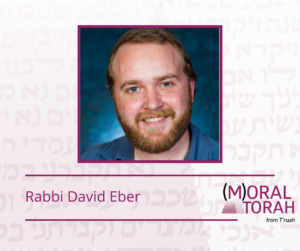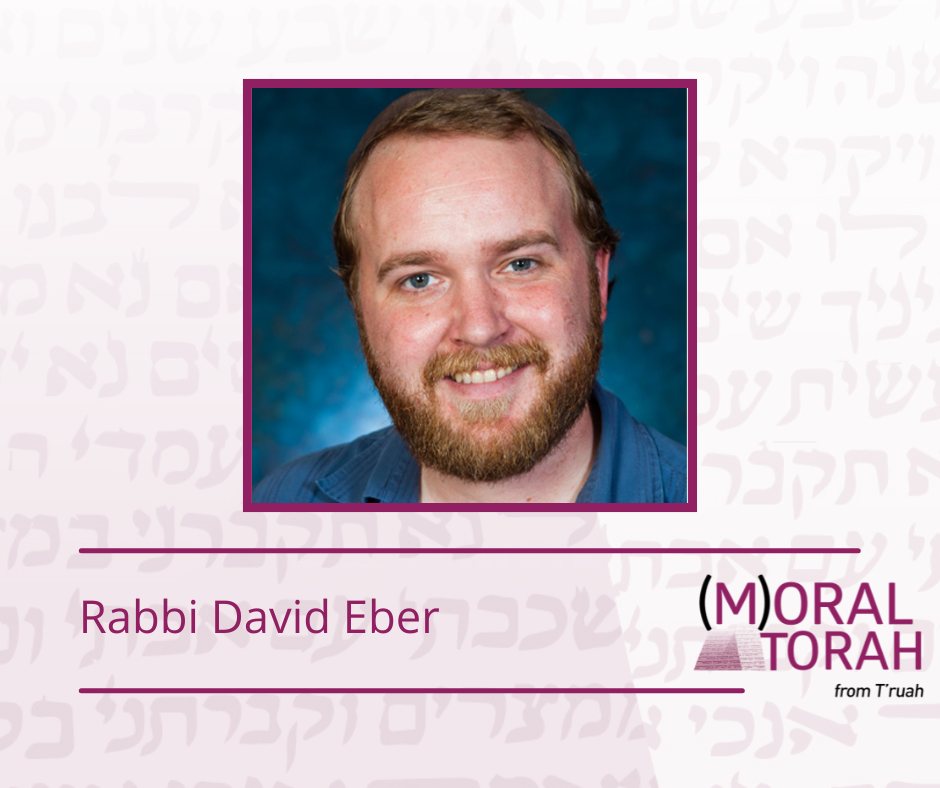A D’var Torah for Parshat Matot-Masei by Rabbi David Eber
“Tell Alderwoman Maria Hadden That You Are Fed Up!” read the headline that accosted me on my morning walk in my neighborhood of Rogers Park on the northeastern edge of Chicago.
What should I be fed up with, I wondered? As I read on, it told me (anonymously with no citations) that a men’s shelter was coming to the neighborhood, and that it was going to bring “crime,” “drugs,” and “Uptown’s problems to Rogers Park” (all of which are dog whistles for racists). The flyer was a harmful piece of misinformation that embodied tropes of NIMBYism — “Not In My Backyard.”
Fortunately I had recently attended a public meeting regarding the shelter, so I was aware of the proposal and how the flyer was full of misinformation. The majority of people who attended spoke in support of the development and noted how it could help the growing homeless encampment down the block. This new shelter would provide 72 beds as emergency housing and a day-use space with showers and laundry, as well as providing case management services to assist in finding permanent supportive housing, along with access to integrated health services and more. The anonymous disinformation flyer neglected to mention any of this, nor did it mention that the organization that will run the shelter has already successfully re-housed 20 people living in the nearby homeless camp this past year alone.
Sign up to receive (M)oral Torah in your inbox each week.
One can acknowledge that, for the person or persons circulating this flyer, coming face to face with the appalling effects of systemic housing injustice, poverty, and more is difficult. The presence of people in communities who have unmet mental health needs due to lack of access to healthcare services, or people who may have substance use disorders and nowhere to turn, can be alarming and at times scary to some. The NIMBY instinct would have us believe that those systemic problems and “those people” will best be solved or helped by placing solutions elsewhere, or outside “our neighborhood.” The Torah portion this week, the double parshah Matot-Masei, provides a different model for how we in fact should incorporate places of refuge into even our most holy spaces.
Matot-Masei famously describes the arei miklat, the cities of refuge, which were cities designated as sanctuaries for those who had accidentally killed someone and therefore needed to flee in order to protect themselves from those seeking revenge. These six cities were a subset of a larger set of towns that were set aside, four from each tribe, as dwelling-places for the Levites, the priestly class, who weren’t apportioned their own land.
Find more commentaries on Parshat Matot-Masei.
Furthermore, we learn these cities weren’t randomly chosen but that there were specific criteria. Makkot 10a explains:
With regard to these cities of refuge, one does not establish them in small settlements or in large cities; rather, in intermediate-sized towns. And one establishes them only in a place where water is available… And one establishes them only in a place where there are markets, and one establishes them only in a populated place, where there are many people who regularly frequent the town.
What we see here in the Torah and Talmud is a different model than NIMBY. Each tribe had to designate cities for the priests to live on, spread throughout the land of Israel in order for them to instruct and demonstrate holiness to all inhabitants.  Six of those cities were designated as sanctuary cities. The place of refuge for these people, who are vulnerable and perhaps even frightening, was precisely among the holy workers of the community and situated in “populated places” near “markets,” which are heavily foot-trafficked. What we see therefore is that the Torah instructs that in the midst of our holiest cities and amongst people who do the work of God, that precisely there — in that place — are the vulnerable to take refuge. Right in our very backyards and city centers, and among important people.
Six of those cities were designated as sanctuary cities. The place of refuge for these people, who are vulnerable and perhaps even frightening, was precisely among the holy workers of the community and situated in “populated places” near “markets,” which are heavily foot-trafficked. What we see therefore is that the Torah instructs that in the midst of our holiest cities and amongst people who do the work of God, that precisely there — in that place — are the vulnerable to take refuge. Right in our very backyards and city centers, and among important people.
Rabbi David Eber is the assistant rabbi for education at the Jewish Reconstructionist Congregation in Evanston, IL.


